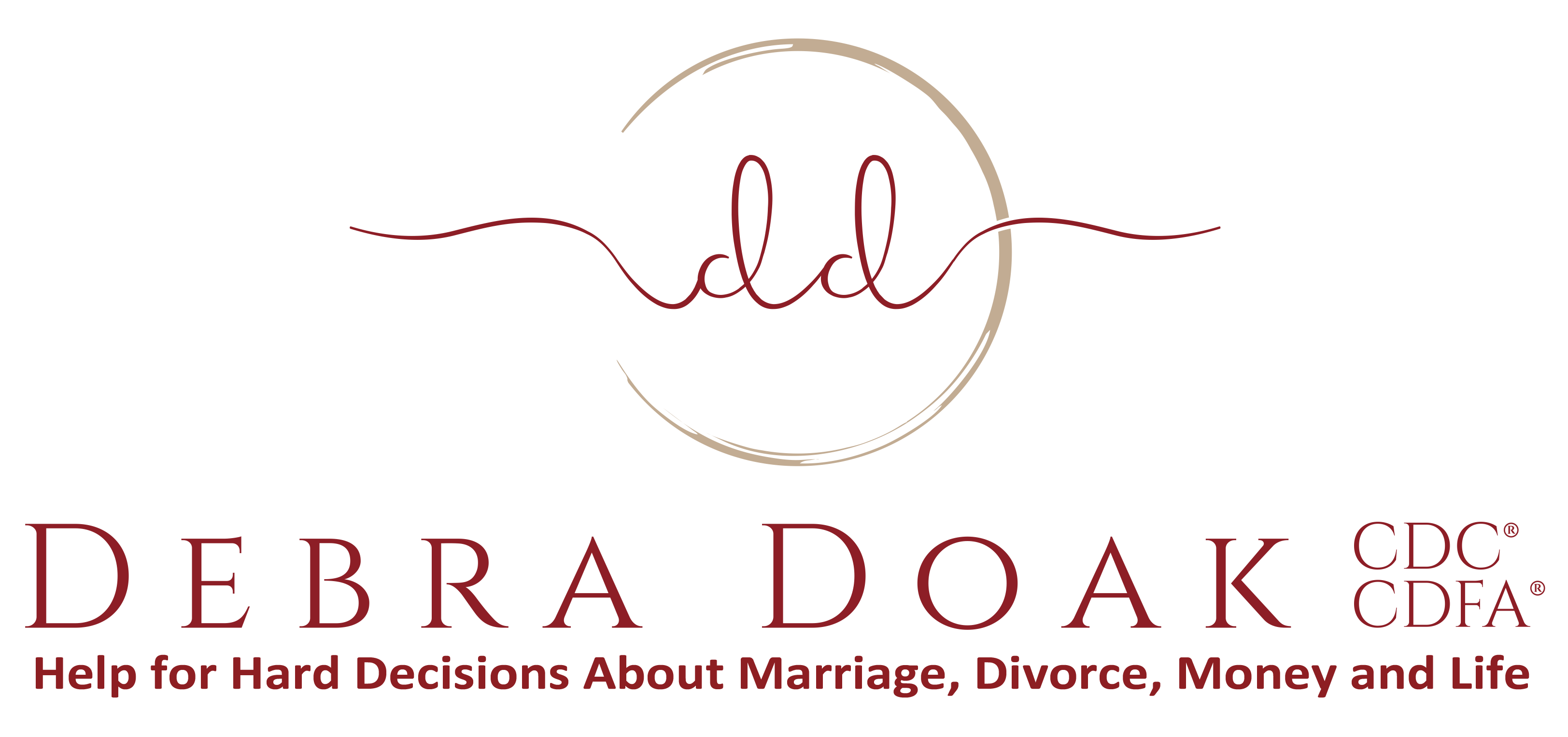
Preparing for Divorce While Watching for Change: Parallel Paths
If you’ve recently discovered a betrayal (or a second, third, or …) in your relationship, you may be wondering if you should stay or if it’s time to go. Well, I’ve got a crazy suggestion for you today if you’re still undecided. What if you did both? I call this strategy parallel paths. It’s when you stay and watch for signs of change AND do some legwork to begin preparing for divorce in case you want to make that choice.
Like many partners, maybe you always thought infidelity would be a deal-breaker, and yet, you feel the pull to give your spouse a chance (or another chance) to change, to do the right thing, to rebuild trust in your marriage. There are a whole bunch of totally valid reasons why divorce isn’t your first move. And yet, I know I’m not telling you anything you don’t know, the chances that your guy will be one of the unicorns that makes a true heart change are not in your favor.
The beauty of the parallel paths strategy is that you are waiting with intention – not sitting around powerless hoping he will do the right thing. You’ll know what you’re watching for and taking some action steps to learn about your options. So let’s take a look at what these parallel paths look like.
Watching for Change
My first question is do you know what you’re waiting for? What specific changes do you need to see in order to know that you can lean back into your relationship? And let’s be really clear here, change is not checking boxes. Heart change is not demonstrated by going to therapy or 12-step meetings. It is not proven by being more helpful around the house.
Why is more required? Because deceptive sexual behaviors cause trauma. Dr. Omar Minwalla uses a metaphor of a secret sexual basement to explain the impact on victims and families. He says, “traditional clinical models for understanding sexual acting out problems have focused solely on the repeating sexual behaviors, while often ignoring the chronic sociopathic and abusive behavioral patterns.” He argues that these models have neglected and omitted other significant problematic behaviors from clinical recognition and treatment.
These include failure to:
- Recognize the abuse
- Recognize the trauma
- Support the victims
- Identify a disorder
He goes on to say, “compulsive-abusive sexual-relational disorders (CASRD) often involve the victimization of others through entitled sexuality and patterns of psychological, emotional and relational abuse. The harm that is done often constitutes intimate partner abuse as well as harm to the family system as a whole.” This is precisely why just going to a CSAT or a 12-step program will not yield the partner you need.
Resources While You’re Watching
While I can’t tell you what you need to feel safe in your relationship, I can point you to some resources that may help you define those for yourself. The most important thing is that you stay grounded in the reality of how your partner is or is not changing in their behavior and attitudes toward you, not just whether or not they’re sober from their acting out. Journaling can be very helpful during this time to prevent you from getting amnesia or spackling over the things you don’t want to focus on.
- Married to a Sex Addict? The Recovery Myth vs. Reality
- If He Has Chin Hair and Chest Hair, He Can Learn to Be a Better Partner
- Guide for Men Who Are Serious About Changing – Part 1
- How to Assess an Abuser’s Claims of Change
- Dr. Minwalla’s White Paper
Preparing for Divorce
I’m guessing one of the reasons you aren’t considering divorce right this minute is because you have some fears or limiting beliefs. So one way we can address those is to explore what it would really look like for you and begin preparing for divorce. Getting answers, knowing the truth, and having a strategy will go a long way toward busting those fears.
The three most common fears I hear from my clients are:
#1 MONEY:
Will you have enough to support yourself? Will you have enough for retirement or to keep the house? We can answer these questions by doing some financial work like estimating what it would cost to live on your own and identifying the assets and debts that would be available to be divided. That will allow you to know the truth and begin creating a strategy to supplement your income if the numbers don’t add up. My Ditch Your Divorce Fears Financial Planner can help you get a jump start on this. Preparing for divorce financially can be a crucial step if you are dependent on your spouse for income.
#2 KIDS:
Isn’t staying together better for the kids? Actually, studies show that although there is an initial adjustment period, most children fare well after a divorce. It isn’t the divorce itself that harms children, it’s how parents divorce that has the greatest impact. So the best thing you can do is plan to shield your kids from any conflict or ill feelings you have about your spouse. That means finding the right support where you can vent and process your own pain and anger so it doesn’t spill over to your children. Putting your children’s best interests first often means making choices that require you to show up as your best self regardless of the emotions that are swirling around you.
#3 CONFLICT:
What if he gets nasty during the divorce? It’s possible. Sometimes abusers aren’t really changing, they are just grooming you and once you let them know you want a divorce, they flip a switch. The entitlement, power, and control come back in full force and the “don’t worry, I’ll always take care of you and the kids” promise evaporates. That’s why we prepare and make sure that you have plans and a team in place before you make that announcement. Things like having emergency savings built up, setting up your own checking account, getting your own credit card, and already consulting with attorneys so you know who you want to work with if needed. Preparing for divorce means preparing for conflict.
Resources for Preparing for Divorce
The truth is that maybe you can’t afford to leave right now. But part of preparing for divorce is making sure you are doing the right things at the right time. Creating an Exit Strategy means knowing that you have all your ducks in a row before you break the news. Here are a few articles and a website that you might find helpful.
- Think You Can’t Afford to Leave? The Stay-at-Home Mom’s Guide to Divorce
- The #1 Divorce Fear That Keeps Women Stuck
- Spousal Support: It’s Complicated
- Should You Work? The Spousal Support Dilemma
- KISS-ing Emotional Abuse Goodbye
- WomensLaw.org
Need More Help with Your Parallel Path Strategy?
I’m happy to work with you to get some clarity. And not only am I a Certified Divorce Financial Analyst©, but I also specialize in betrayal trauma. I can help you identify the changes you need to see while at the same time, help you start preparing for divorce. No need to be afraid when you have a plan.
Wishing you strength and wisdom,




